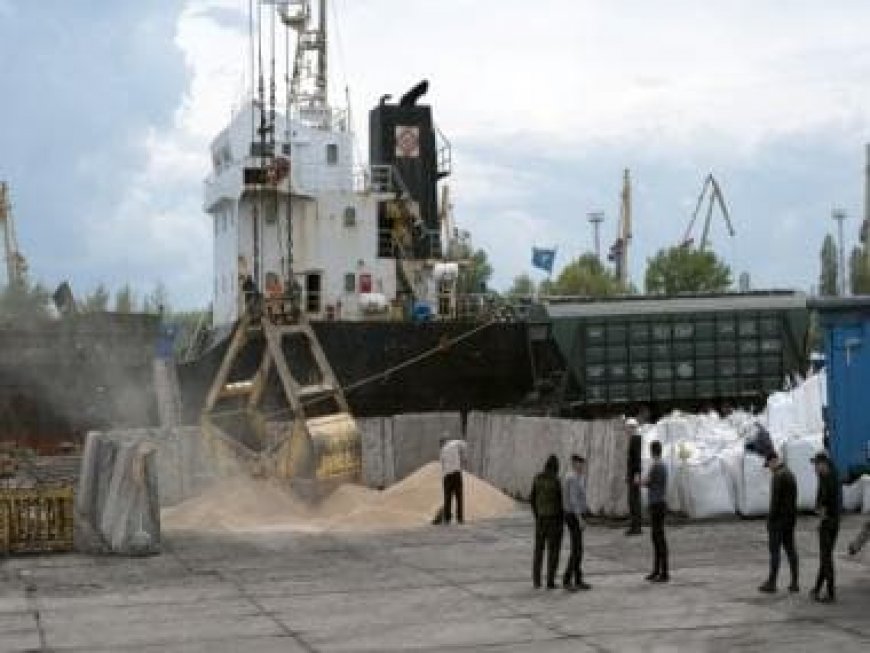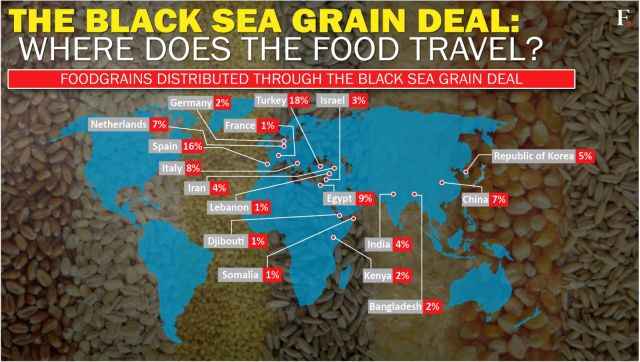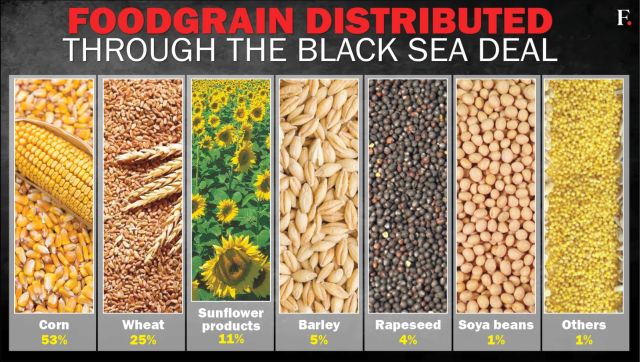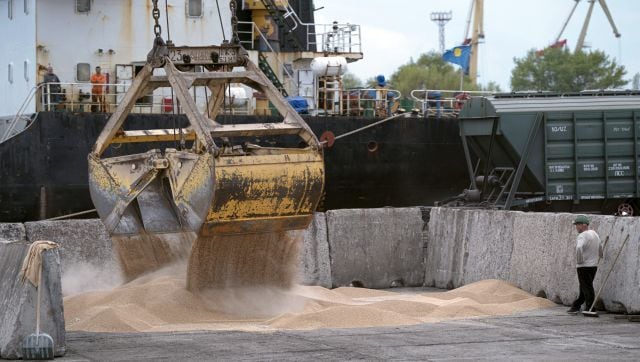What is the Black Sea Grain deal set to expire today? Why's Russia unwilling to extend it?
What is the Black Sea Grain deal set to expire today? Why's Russia unwilling to extend it?

Will we see a ‘foodmageddon’? The world watches with bated breath as a landmark agricultural deal brokered between Ukraine and Russia is set to expire today (17 July) and Moscow refusing to renew the agreement.
What are we talking about? It’s all about the Black Sea Grain Initiative, a deal brokered by the United Nations and Turkey between Russia and Ukraine on 22 July 2022, to ensure food supplies through the Black Sea, which was stranded following Russia’s invasion of Ukraine.
In an attempt to keep the deal alive, United Nations secretary-general Antonio Guterres sent a letter to Russian president Vladimir Putin outlining proposals to salvage the deal. On Friday, UN spokesman Stephane Dujarric told reporters that conversations with the Kremlin via Signal and WhatsApp would continue over the weekend.
As the clock winds down, we take a closer look at what exactly is the Black Sea Grain Initiative, why Russia is threatening to pull out of it and what happens if the deal isn’t extended.
What is the Black Sea Grain Initiative?
In August 2022, months after the Russia-Ukraine war began, both sides signed separate agreements that reopened three of Ukraine’s Black Sea ports – Chornomorsk, Odesa, and Yuzhny/Pivdennyi.
Both, Moscow and Kyiv, are major global suppliers of wheat, barley, sunflower oil and other affordable food products that Africa, the Middle East and parts of Asia rely on. Ukraine is also a huge exporter of corn, and Russia of fertiliser — other critical parts of the food chain. Interrupted shipments from Ukraine, dubbed the “breadbasket of the world,” exacerbated a global food crisis and sent prices for grain soaring worldwide.

The deal provides assurances that ships won’t be attacked entering and leaving Ukrainian ports. Vessels are checked by Russian, Ukrainian, UN and Turkish officials to ensure they carry only food and not weapons that could help either side. Meant to be extended every four months, the deal was hailed as a beacon of hope amid war and has been renewed three times — the last two for only two months as Russia insisted its exports were being held up.
Also read: How Russia’s war in Ukraine is starving the world
What has the deal achieved so far?
Before Russian troops poured over Ukraine’s borders in late February 2022, Kyiv and Moscow accounted for almost a quarter of global grain exports. However, as the war began, Ukraine’s some 20 million tonnes of grain were trapped, causing global food prices to skyrocket. It threatened food supplies to a number of Middle Eastern and African countries which rely heavily on Ukrainian grain.

The UN had then warned that 44 million people in 38 countries were facing “emergency levels of hunger”.
However, after the deal was signed global prices of food commodities like wheat came down and some sense of food security was upheld.
And according to the UN’s Joint Coordination Centre, which runs the scheme, since it began, 32 million tonnes of foodstuffs have been shipped from Ukraine, as well as fertiliser. Also, the agreement gave the World Food Program (WFP) its number two supplier and 725,167 tonnes of wheat have sailed on World Food Program ships to some of the world’s most food-insecure countries, such as Afghanistan, Ethiopia, Somalia, Sudan and Yemen so far.
Why is Russia threatening to pull out now?
As per a BBC report, the deal is meant to be extended for 120 days at a time, but in March and May 2023, Russia agreed to extensions of only 60 days. And now, Russia is threatening to pull out completely.
Russia alleges that the deal is not favourable to them, as commitments made to remove obstacles to Russian food and fertiliser exports have not been fulfilled. It argues that it sees no grounds to extend the deal.

In April, Russia’s foreign minister Sergey Lavrov had warned that if the Black Sea Grain Initiative did not soon incorporate fertiliser products, Moscow would not renew the agreement. “It was not called the grain deal it was called the Black Sea Initiative and in the text itself the agreement stated that this applies to the expansion of opportunities to export grain and fertiliser,” Lavrov was quoted as telling reporters during a 26 April press conference at the UN.
On Thursday, an AP report, quoted Russia’s strongman Vladimir Putin as saying that Moscow wouldn’t extend the grain deal unless the West fulfills “the promises given to us.” “We have repeatedly shown goodwill to extend this deal,” Putin told reporters Thursday. “Enough is enough.”
Apart from the fertiliser export, Moscow’s other demand is for the Russian Agricultural Bank, or Rosselkhozbank, to return to the SWIFT banking system. Russia has been excluded from the world banking system since the beginning of the war in Ukraine.
There’s also the demand of resuming the supply of agricultural machinery and parts. Moreover, Russia wants the resumption of the Togliatti-Odesa ammonia pipeline and the accounts of Russian companies involved in food and fertiliser exports.
What happens if the deal isn’t extended?
The grain deal is crucial to ensure food security across the world. In fact, the International Rescue Committee calls it a “lifeline for 79 countries and 349 million people”.
If the deal comes to an end, it could mean the prices of some staples would rise, pushing people into further poverty and starvation. The WFP said last month that multiple emergencies had overlapped creating the largest and most complex hunger and humanitarian crisis in more than 70 years.
Shashwat Saraf, the regional emergency director for East Africa, International Rescue Committee, told the Associated Press, “It is critical that the deal is extended for a longer term to create some predictability and stability.”
Additionally, countries would need to find suppliers outside the Black Sea region, further raising the costs of staples. This would negatively impact countries and debt levels would grow exponentially.
For low-income countries and people, food “will be less affordable” if the grain deal isn’t renewed, World Food Program chief economist Arif Husain told reporters.
The cancellation of the deal would also affect Ukraine, whose economy is largely dependent on food exports
And it seems that countries are preparing for the worst. Jake Sullivan, the US national security adviser, said Sunday in an interview with CBS’ Face the Nation that it wasn’t clear what Putin would decide. “We are prepared for any scenario, and we’re working closely with the Ukrainians on that,” he said.
With inputs from agencies
What's Your Reaction?



























































